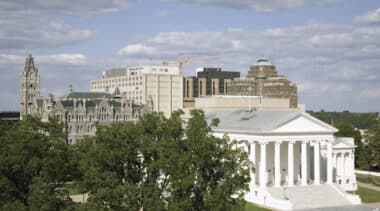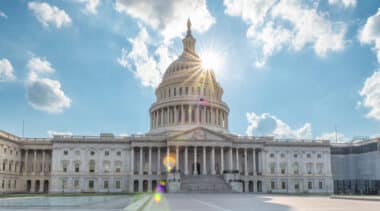-
For most workers, the value of Alaska’s defined contribution plan surpasses that of a traditional pension
The following tool created by the Pension Integrity Project displays the year-by-year accrual of retirement benefits for a wide variety of Alaska workers in different fields and starting at different ages.
-
Alaska’s supplemental savings program outperforms Social Security
The Alaska SBS-AP serves as a valuable case study in innovative retirement planning.
-
As regulators fight big tech mergers, startups often pay the price
Regulators deterred Amazon’s acquisition of iRobot. They may also have deterred innovation and future competition.
-
Florida should be skeptical of age-based social media ban
Blanket bans on social media use for minors under the age of 16 represent a misguided approach that overlooks the complexities of the digital age and violates the First Amendment.
-
Five key trends in education spending, teacher salaries, staffing and test scores
Total inflation-adjusted education spending increased by 25% per student while average teacher salaries fell by 0.6% from 2002 to 2020.
-
Governments trying to recruit and retain employees need to reassess how young workers view pensions
Public workers under the age of 35 say job security, work-life balance, health insurance and personal satisfaction are what attracted them to their public service jobs.
-
Survey shows stereotype of the lazy, lefty marijuana smoker doesn’t reflect reality
Marijuana users come from all different backgrounds and are not restricted to a particular political affiliation, education level, income bracket, career position, or location.
-
Nonprofit announces new partnership with Ohio to tackle opioid addiction with ibogaine
A promising new partnership announced in Ohio this week will explore the use of the psychedelic compound ibogaine to treat opioid use disorder.
-
Georgia shouldn’t block the development of private SeaPoint Terminal
The Georgia Ports Authority and Port of Savannah are fighting efforts to privately build the SeaPoint Terminal.
-
Many of Virginia’s public schools charge significant tuition to transfer students
Research finds 55 Virginia public school divisions charge non-resident tuition rates to transfer students.
-
Florida’s successful telehealth policies should be applied to address dental care shortages
More than seven million Floridians live in areas with shortages of dental health professionals.
-
An outdated federal law prevents transit automation
Unless the federal law known as Section 13(c) is repealed, U.S. transit agencies will struggle to implement automation and reduce expenses.
-
The risky political push to force public pensions to divest from China
The worrying trend of using public pension funds as a tool to exercise political leverage.
-
New York’s clean slate reforms offer former offenders a second chance
New York’s approach to automated record sealing strikes an appropriate balance between upholding public safety and offering former offenders a second chance.
-
South Dakota reduces unnecessary occupational licensing barriers for people with criminal records
South Dakota's Senate Bill 57 is a major step in the right direction in reducing barriers to employment for individuals with criminal records.
-
Gov. Gavin Newsom’s education budget ignores fundamental problems
The governor largely ignores declining public school enrollment and California's unsustainable K-12 education spending.
-
The Breakthrough Therapies Act could spur research and improve access to life-saving drugs
The Breakthrough Therapies Act would pave the way for more accessible and innovative mental health treatments while also enabling state-level adaptation.
-
As California tries to meet climate goals, the state’s roads could get even worse
California policymakers should replace the gas tax with road charges dedicated to maintaining and repairing roads and bridges.

















